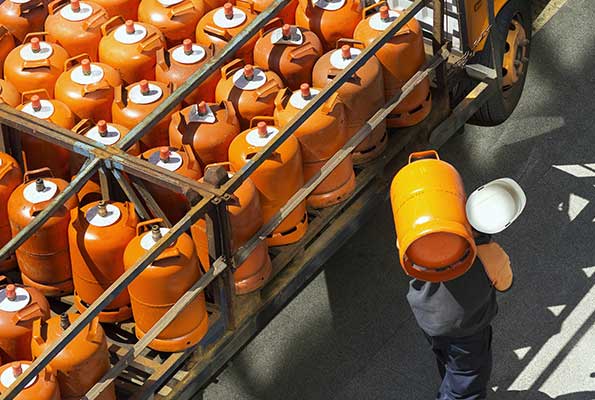From January 2024, the Australian state of Victoria will prohibit gas connections to new homes and public structures.
Environmental organizations and the Property Council have applauded the measure, but others claim it may result in higher energy costs.
Environmental organizations and the real estate and construction industries have supported the decision, but the opposition has cautioned that the shift could result in higher home energy bills due to an increase in electrical usage.
The big energy change was recently made public by the Victorian government as part of its strategy to achieve net zero emissions in the state by 2045.
According to official estimates, the shift will lower emissions and save homeowners up to $1,000/year on energy costs, or $2,200 if they have solar panels installed.
New residential construction that requires a planning permit, as well as public structures like schools and hospitals, will only use electricity as of January 1.
Lily D’Ambrosio, the state’s energy minister, claimed that the modifications would enable a new homeowner to reduce their energy costs.
Environment Victoria’s CEO, Jono La Nauze, too stated that gas is a costly and harmful fossil fuel.
“The long-term trend indicates that renewable electricity will continue to become more affordable while gas costs rise. To keep tying up brand-new houses to antiquated energy sources is absurd,” the official stated.
The government’s support for coal and gas projects like gas drilling close to the Twelve Apostles, according to the Greens, will undercut the reform’s advantages. The Climate Council, the Clean Energy Council, Friends of the Earth Melbourne, and the Energy Efficiency Council all endorsed the change.
Change is welcomed by the Property Council and Master Builders.
Additionally in favour of it was the Property Council of Australia, whose national policy director, Frankie Muskovic, claimed that the industry needed clarity as it transitioned to “zero-carbon-ready buildings” because of the prohibition on gas connections.
“We applaud the Victorian government’s decision to forego investment in new gas network infrastructure in favour of focusing on lowering energy costs and giving Victorians cleaner, healthier homes,” she informed the media.
“Every new building built with gas will need to be retrofitted in the future, so we welcome this move,” the CEO added further.
According to Michaela Lihou, chief executive of the Masters Builders Association Victoria, the restriction would assist pave the road for the state’s building industry to have a sustainable future.
According to the Royal Australian College of General Practitioners, the modifications would lessen exposure to indoor air pollution and aid in the fight against global warming. Dr. Aadhil Aziz, the co-deputy chair of the RACGP, stated the reform was an effective strategy for enhancing health.
According to a study, gas stoves can also cause asthma in youngsters.
“Gas stoves expose people to respiratory irritants, which leads to a multitude of respiratory conditions,” he stated.
The detractors also stated that because the reform was being implemented at the same time that Victoria’s Essential Service Commission (ESC) recently increased the price of the default electricity offer by 25%, it would result in higher household energy costs.
The moves were described as “desperate policy on the run” by Brad Rowswell, the spokesperson for the opposition’s treasury.
“We do need a smooth energy transition from the way things are now to how things will be in the future,” he remarked.
The decision, according to Innes Willox, CEO of industry association Ai Group, was “a turning point.”
“A clear choice about the future of gas at least offers some assurance. But we shouldn’t undervalue the effect on the supply chains for appliances, and we also need to make sure that gas consumers continue to have a safe supply,” according to Willox.
Understanding The Victoria Scenario
The latest announcement follows Victoria’s 2022 announcement about phasing away the requirement for gas connections in new dwellings.
With roughly 80% of houses connected, Victoria has Australia’s highest rate of domestic gas use. Gas continues to be the most common fuel in the state, especially for wintertime home heating.
The transition to electric systems is essential to achieving Victoria’s nationally leading emissions reduction targets of 75% to 80% by 2035 and net zero by 2045. The gas industry is responsible for around 17% of the state’s emissions.
As a step toward the territory’s goal of becoming net zero by 2045, the ACT enacted a restriction on new gas connections last month. The government of New South Wales too declared that it had no immediate intentions to match Victoria’s gas commitment.
To guarantee that the reforms can take effect, the Victorian government will implement adjustments to planning laws and programmes. It promised to collaborate with businesses, particularly trade associations and producers of gas appliances, to help the transition.
D’Ambrosio also announced the establishment of a new USD 10 million residential electrification grants program. The option to offer new homebuyers bulk subsidies for solar panels, solar hot water, and heat pumps will be offered to volume housebuilders, developers, and others.
In order to help Victoria attain net zero emissions, the Andrews government will later in 2023 unveil an updated gas substitution roadmap that will contain more electrification and energy-saving measures.



